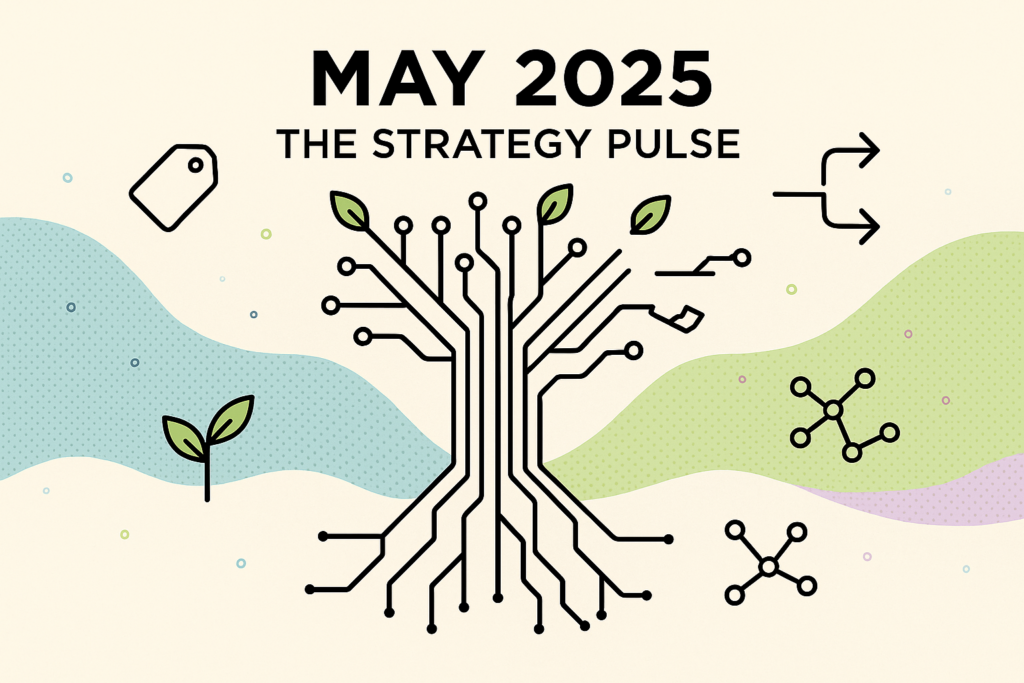
Gamification in Hiring: Using Game Elements to Assess Candidates and Enhance the Recruitment Process
Gamification in Hiring: Using Game Elements to Assess Candidates and Enhance the Recruitment Process
July 19, 2023

Ten years ago, you’d be able to find teenage me cocooned in a duvet, perched in front of my computer desktop and glued to the screen, tending to my carefully curated Sims characters or launching a game of Fireboy and Watergirl on Miniclip. Computer games were life. If you’d have told me that I was in any way doing something productive – let alone preparing for the hiring process that could land future me my dream job – I would have laughed you out the room then and there.
And yet here we are, in the good year of 2023, playing our way through the hiring process at some of the world’s most prestigious organisations. Nowadays, it’s not even remotely farfetched to imagine a future management consultant at Unilever or auditing analyst at Deloitte sat in front of a computer, violently prodding at the keyboard to win a car racing game to prove themselves to their potential employer. Imagining a future banker hitting the spacebar again and again to blow up a balloon until it pops in a bid to showcase their risk-taking skills sounds like a skit straight out of a comedy sketch, but it’s actually a real-life scene from the realm of reality. This is just one example of the many psychometric tests used to gauge the suitability of a candidate for a particular role.
More and more companies are adopting gamification as part of their hiring process, including PwC, McKinsey, Diageo and HSBC, to name just a few. It’s often the first hurdle that graduates have to jump over in order to make it through to the next assessment stage of the hiring process. Gamification is a recruitment trend that has been growing steadily in popularity for the past twenty years. While it is still shrouded in scepticism, with many questioning its effectiveness and validity, it’s a phenomenon that has most of the working world in a firm chokehold, and there seems to be no way to escape its tight grip: The industry was valued at a whopping $6.8 billion in 2018, a figure which is projected to rise to a staggering $40 billion by next year. So, what exactly is the purpose behind gamification in hiring, and should you be incorporating it into your company’s recruitment process too?
What is gamification in hiring?
This is a surprisingly difficult question to answer. It’s near impossible to concisely summarise exactly what gamification in hiring looks like, because it has proliferated into such a far-reaching and wide-ranging industry. There is such a colourful variety of recruitment games out there, all designed to uncover particular skillsets or geared towards a particular sector. However, there’s one thing that all recruitment games have in common, and that is a singular purpose: To bring out the best in candidates, unveiling their unique skills and putting them to the test first-hand. These games come in many shapes and sizes.
Rewind to 2002, when games were first introduced into the hiring process by the US Army. Young recruits were encouraged to partake in a multiplayer video game called ‘America’s Army’, which formed part of their overall assessment, a prospect which naturally enticed many candidates. To this day, the games have stuck, thus demonstrating that they have clearly stood the test of time: The US Army continues to tap into the popularity of competitive Esports, mimicking games like Call of Duty and incorporating them into the recruitment process.
Since its inception, the recruitment gaming industry has exploded and flourished and multiplied, evolving into a limitless network of games, all with their own unique quirks and variations. Games are only effective insofar as they shine a light on the skills and qualities considered important by recruiters and hiring managers. For example, Marriott Hotels developed a game inspired by the infamous Facebook game Farmville (find me someone who wasn’t taunted and haunted by spam Farmville notifications from Facebook friends back in the 2010s, I dare you), that saw candidates running their own virtual interactive hotel.
The Marriott Hotel game feels a world away from the interactive test used by McKinsey, which thrusts candidates into an ecological minefield that involves protecting plants, saving animals from natural disaster, and managing resources during periods of migration.
Silly and outlandish as some of these games may potentially sound, they actually have the power to showcase the potential of candidates. Used correctly, gamification can provide a great deal of clarity to recruiters and hiring managers at the early stages of an application, streamlining the process by eliminating the need to sift through an endless pile of CVs, and complementing a candidate’s application. It looks increasingly likely that gamification in recruitment is set to become the norm.
Why use games in the recruitment process?
According to a growing number of hiring managers and recruiters, there are countless benefits to using gamification in the recruitment process. First and foremost, it injects some much-needed fun into a process that is often riddled with an excess of stress and pressure. Games spice up an experience that is otherwise notoriously mundane and predictable, while simultaneously giving candidates a positive and exciting glimpse into a company’s distinctive culture. From the offset, it creates the impression that your organisation is forward-thinking, interactive, enjoyable and progressive, thus keeping them more engaged throughout the hiring process. Games can also be used to showcase your organisation on a practical level, allowing candidates to experience a day in the life at your company, offering them an insight into some of the responsibilities and demands of the job in a more interactive, immersive and engaging way.
From a diversity standpoint, using gamification in hiring can, to an extent, democratise the recruitment process in its earlier stages. In the past, hiring managers would routinely follow an archaic recruitment practice: Dusting off a towering pile of CVs and sifting through them, instantly dismissing those that don’t have a top university plastered across them. Attending Oxford, Cambridge, or Durham used to be a hall pass into some of the most prestigious organisations and businesses, but thankfully the recruitment process is not as elitist as it once was. Only 27% of the UK’s student population attend Russel Group Universities, and the vast majority of those students come from privileged backgrounds. According to recent data, the proportion of black students at Russel Groups is just 4%, which is merely half the UK average of 8%. By utilising gamification, hiring managers can test individuals for raw talent and potential rather than simply the relevance of their experience or the status of their degree, giving gifted candidates a chance to prove themselves rather than writing them off from the get-go. While some may argue that this diminishes the hard work students put into attaining a degree from a prestigious university, it cannot be argued that it ultimately makes the hiring process fairer.
There’s also a more psychological element to recruitment games. For one thing, those who opt to complete the games are proactively engaging in your company’s hiring process. They’re not just clicking a few buttons and serial-sending their CV out to hundreds of companies; They’re dedicating time and energy to the assessment at your organisation. From a hiring manager or recruiter’s perspective too, games can be massively beneficial. They have the potential to significantly cut the time taken to hire, because while it may take hours to sift through CVs or grade individual assessments, a game can be completed in a matter of minutes, and results can be collated instantly thanks to automation.
The downside
Despite the plethora of benefits that gaming undeniable boasts, the phenomenon has definitely garnered a fair few naysayers and sceptics. Some argue that it is unfair to judge candidates simply off of a game; After all, there is no set formula to hiring, and using a computer game to slot individuals neatly into boxes rather than assessing them in-person could be seen as a bit of a cop-out. In an ideal world, hiring managers would be able to spend a significant amount of time assessing every candidate who applies for a role, but that is simply untenable in today’s working world. The number of graduate applicants emerging from university is growing rapidly, and it’s becoming near impossible to screen such a vast number of candidates. According to recent data, there are now over 800,000 grads and postgrads making their grand debut in the working world each year, with many naturally gravitating towards the same graduate schemes and entry-level roles. It’s no surprise that only 30% of companies use interviews at the initial stage of the hiring process for graduate roles; Some level of gamification or automation is needed in the early stages to streamline the hiring process. Simply put, it’s a practical necessity.
Some critics are wary of the hype surrounding gamification in hiring, believing it to be nothing more than a fleeting fad that will soon fall out of fashion. It could be argued that the effectiveness of gaming in hiring is yet to be proven in any sort of concrete terms. Indeed, Brian Burke undermined the concept of recruitment gamification when he said back in 2013 that the “initial hype surrounding the trend creates unrealistic expectations for success and many poor implementations follow. Like any new trend, gamification will move through the hype cycle from the peak of inflated expectations into the trough of disillusionment”. There have undeniably been instances of recruitment games failing, for example when, according to Mashable, the Marriot Hotel Game fell off the face of the earth because candidates didn’t want to play it, despite the huge production costs that had been pumped into it. There are definitely some common pitfalls when it comes to recruitment gaming that need to be avoided in order to ensure success.
The key is not rushing into implementing games in the hiring process without doing proper research. But when you find the right game for your recruitment practice, the benefits are indisputable. According to Workable, Forbes reported that since introducing a game into their assessment process, PwC’s candidate pool had grown by a staggering 190 percent, and candidate engagement had increased by 78 percent.
Now, that’s not to say you need the budget of a big four consultancy to ensure that gaming can be an effective and reliable part of your hiring process. The recipe for success is research; You need to ensure that the company you’re using is valid and reputable. The proof is in the pudding: Can they provide you with solid results from their customer base? Is the design of their games attractive, streamlined and straightforward from a candidate perspective? And are their games able to test for the particular skillsets you’re looking for in your sector?
Finding the right games for your hiring process is a delicate art form, and it’s important to strike the right balance. You don’t want to put candidates through the experience of playing a game that verges on tacky and childish; It’s a fine line to tread. The games must be relevant to the particular role they’re applying for, and candidates should feel like they’re getting something out of it. Psychometric tests are particularly beneficial because they feed back to candidates, reporting on their strengths and weaknesses so that they can learn from their results. Moral of the story: Don’t use gamification in hiring for the sake of it. Identify the purpose you want it to serve, and invest in a reputable and effective game to yield the best long-term results.

